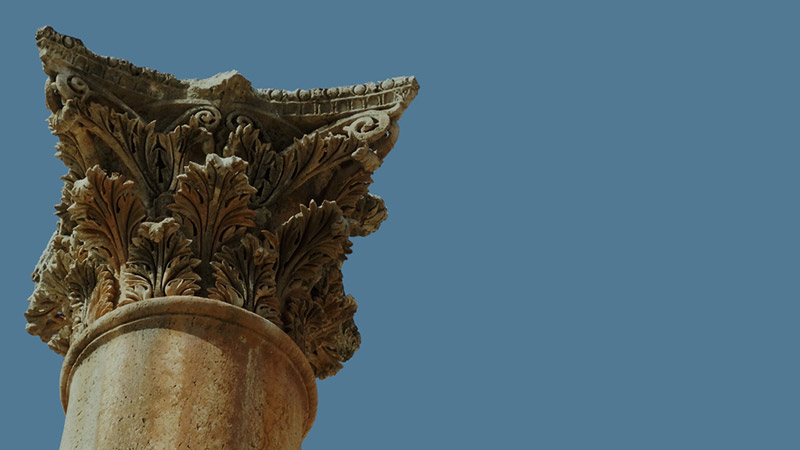More Results
Showing 12 of 169
Articles

Shephelah
ShephelahThe Hebrew Bible mentions the Shephelah several times. This word, meaning "low," is usually translated "lowlands" or "foothills." The term refers to a 12- to 15-mile-wide region in Judea. Though the Israelite...
MORE
Sons of Light
Sons of LightIn Jesus' time, there were four major religious groups (or "philosophies," as Josephus, the Jewish historian of the time, called them). They were the Zealots, the Sadducees, the Pharisees, and the Essenes. It is impossible t...
MORE
Standing at the Crossroads
GezerTravel to Gezer, and learn what it means to stand at the Crossroads.Gezer is one of the greatest tels in Israel. To stand on this magnificent tel is to stand on a part of history that existed as many as 3,000 years before our Messiah walked t...
MOREEncyclopedia

Shema
One day a student came to Jesus and asked, "Teacher, what is the greatest commandment?"You might recall that Jesus included "Love God" and "Love your neighbor" in his response. Do you remember, however, that Jesus ans...
MORE
Shepherd Lifestyle
Adult Bedouin males usually delegated the care of flocks to young boys and girls. This responsibility was learned early in childhood. The possibility that young boys and girls were in the fields tending flocks forms a startling' contrast to the t...
MORE
Shepherds
Shepherding was a way of life for biblical people. Abraham, the father of the Jews, was a shepherd, as was Moses, the great lawgiver (Ex. 3:1), and David, the king who established Israel's national identity (1 Sam. 17:28).As the land was settled, ...
MORE
Standing Stones
Sacred StonesLong before the Israelites entered Canaan, pagans in the Middle East erected sacred stones to honor their gods, to declare covenants and treaties between cities, or to honor an important event that could only be explained by the super...
MORE
Storehouses of Masada
This photograph shows the remains of the 15 storehouses on the eastern side of Masada. The one on the left is as it was found by archaeologists; the others have been reconstructed. In the background above the storehouses, you can see the Dead Sea,...
MORE
Susita
This photograph is taken from Mount Arbel on the western shore of the Sea of Galilee near Tiberias. The hilltop where Susita (Hippos) was located is clearly visible on the eastern shore. Towering over the Sea of Galilee, Susita is connected to the...
MORE
Synagogue Beginnings
There are many theories about the origin of a gathering place called "synagogue." The Greek word for synagogue means "assembly" and is used in place of the Hebrew word meaning "congregation" or "community of Isra...
MORE
Synagogue of Korazin
Korazin was one of the cities where "most of his miracles had been performed" (Matt. 11:20). Typical of Galilean towns of the time, the synagogue occupied a prominent place on an elevated platform in the center of town, symbolizing the i...
MOREGlossary

Spring of Gihon Definition
Spring in the Kidron Valley near Jerusalem. It was the main water source for the city during Old Testament times. Hezekiah built a tunnel that directed the spring's water inside the city walls. Gihon means "gushing out."
MORE

















